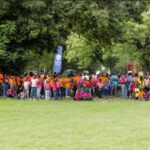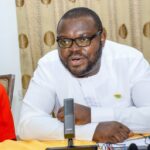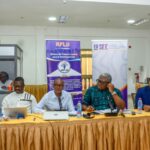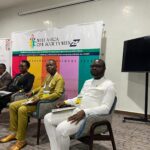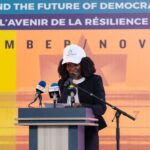
Dr. Joseph Kobla Wemakor, Executive Director of Human Rights Reporters Ghana (HRRG), has described the recently concluded high-level training on Human Rights Risk Detection, Early Warning, and Advocacy in Africa as both insightful and transformative.
The workshop, hosted by the Network of Women Leaders for Development (RFLD), took place November 14–15, 2025, at the Mensvic Grand Hotel, East Legon, Accra, bringing together over 30 civil society actors, human rights defenders, and activists from across the continent.

Speaking about his experience, Dr. Wemakor emphasized the practical and collaborative nature of the training. “This workshop has been one of the most engaging learning experiences I have attended in recent years,” he said.
“From the interactive case studies and role-playing scenarios to the multimedia sessions and practitioner testimonies, every element of the program was designed to equip participants with actionable skills in early warning and human rights advocacy.”
Dr. Wemakor highlighted the value of building networks across Africa. “What stood out most for me was the opportunity to connect with civil society actors from different countries, share experiences, and learn collectively about emerging threats and strategies to protect human rights.
The insights I gained here will directly inform HRRG’s work in monitoring civic space, identifying risk indicators, and advocating for accountability,” he explained.
The training, organized by RFLD with support from EU SEE, ACHPR, WADEMOS, and WACSI, focused on equipping participants to detect risks to human rights, analyze early warning signals, and develop actionable advocacy strategies.
By the end of the two-day program, Dr. Wemakor and other participants had gained a comprehensive understanding of early warning system architecture, practical skills in data collection and analysis, and the ability to transform early warnings into effective advocacy plans tailored to their organizational contexts.
Mr. John Gbenagnon, Senior Officer at RFLD in charge of Partnerships and Resource Mobilization, outlined the workshop objectives and emphasized the combination of theory and practice: “This training is designed to empower defenders to identify early warning signals, analyze risk indicators, and translate them into actionable advocacy strategies,” he said.
Other speakers reinforced the importance of sustained collaboration.
Prof. Remy Ngoy Lumbu, Special Rapporteur on Human Rights Defenders, highlighted the training as an educational platform intended to produce tangible impact across Africa.
Dr. Pascal Dohou of CIVICUS noted the significance of regional engagement, while Paul Osei Kuffour of WADEMOS emphasized the urgent need to adapt strategies in response to shrinking civic spaces and rising threats to human rights defenders.
Reflecting on the outcomes, Dr. Wemakor observed: “The workshop has strengthened our ability to anticipate risks, respond proactively, and coordinate effectively with other defenders.
Beyond the skills, it has reinforced the importance of solidarity and knowledge-sharing in ensuring the protection of human rights across Africa.”
Omolara Balogun of WACSI added that the resilience of civil society is critical in the current climate of democratic challenges, while Onyonge Mengo of Hivos East Africa underscored the role of data-driven advocacy in informing decision-making and strategy.
The training concluded with a shared commitment to strengthen cross-border collaboration, reinforce early warning networks, and promote evidence-based advocacy.

Dr. Wemakor reaffirmed HRRG’s commitment to applying the knowledge and strategies gained to defend and expand civic space, particularly for women, youth, and marginalized communities, across Ghana and the African continent.



